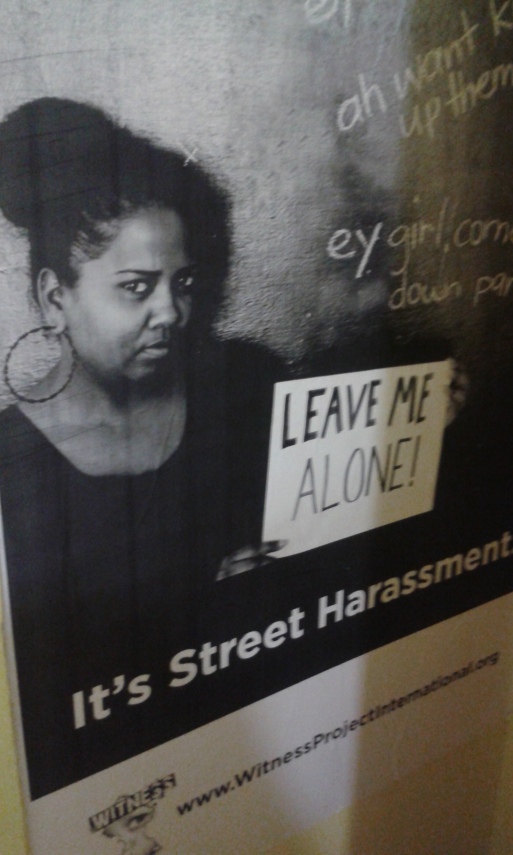
In South London, from whence I hail, ‘chirpsing‘ is slang for chatting up or making a move. (Or at least it was in my day.) I don’t know the origin of the verb, but here in Guyana it seems a suitable turn of phrase – given the chorus of kissing sounds that accompanies women and girls as they walk down the street – almost drowning out the insistent calls of the noisy local birdlife.
Every country seems to have their own variation on the theme. When I was in Ghana, for example, it was a ‘sssss’ sound, accompanied by a palm-down beckoning hand. In Brazil, perhaps a long, satisfied ‘Eyyy’ or ‘Oiiii lindaaa’. In London, it’s mostly stone-cold silence and furtive side looks – from the British men anyway.
Comparing notes with girl friends on WhatsApp, one said she had taken to using the middle finger as a response to the snake sounds she was hearing in Kenya. I’m not sure I’d go that far, but how should you respond?
I usually feign deafness and walk on. But words are harder to ignore – and my irritation levels vary according to the language, context and man. “Sexy” generally makes me bristle and feel uncomfortable, as do any comments relating to body parts – although the random “PALE LEGS!” shouted from a passing car in Georgetown the other day did make me chuckle. And someone hailing you “Queen of queens, good morning” – as a friendly man did last week – kind of puts a regal step in your stride. But on the whole, such comments just make you aware that you’re being looked at and assessed like a piece of juicy meat.
You start to notice the correlation between the explicitness of the comments and what you’re wearing. So maybe you dress down, wear something more covered than the nice summer dress you were planning on, walk with your head down to avoid eye contact and make yourself more invisible. Because if you walk proud and tall, and wear what you like, that might be seen as an invitation to approach.
One thing that has always puzzled me is: do men ever actually get a response? Do some women stop, turn around (it’s usually said to your back) and enthuse, “You think I’m a ‘sexy gyal’? OK, here’s my number!” If not, what is the point? To show appreciation? Wield their manly power? Intimidate?
Some people advocate a complete end to what is, essentially, sexual harrassment. Leaving the bathrooms at the Oasis Cafe in GT, I spotted the poster above – under the headline ‘It’s Not a Compliment‘ – showing there’s an appetite for change in the air here. (More on the project behind that poster here).
Some people would disagree and say that’s being over-sensitive. This includes women as well as men. But I think that’s just because we’ve become accustomed to it, and don’t think about how wrong it is till we watch videos like this:
Wouldn’t it be pleasant to walk down the street in peace, instead of on edge? To not have to worry about getting the balance right between not encouraging them and being rude by ignoring them? To not be hassled for just being a woman.
Until that day comes, here are a few suggestions for men who insist on catcalling:
- Avoid saying anything related to sex or her body.
- Keep it public and daytime – don’t make a woman walking home alone feel even more afraid than she is already.
- Be respectful in your approach and choice of language.
- Don’t pursue the matter if the woman doesn’t respond – it’s her choice. None of this calling her a bitch, rude or running after her.
- If she is offended, humbly apologise.
Or you could, you know, just smile; look the woman in the eye; greet her politely; and let her get on with her day.

[…] Freelance journalist Carinya Sharples, in a blog post, wrote: […]
LikeLike
[…] Freelance journalist Carinya Sharples, in a blog post, wrote: […]
LikeLike
nice to see our posters are making an impact! and interesting that you’ve given a few tips on ‘best practices’ for those who insist on catcalling. i know some may see that as giving a pass to the practice. i do prefer the final sentence as advice. but i’m also a realist and can see / appreciate the tips as well.
LikeLike